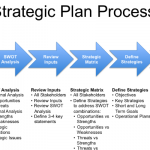A lesson in response management, not!
Recent issues of the New York Times and Wall Street Journal have been particularly rich in their commentaries of heretofore magnificent corporations who have fallen on hard times, American writers have particularly enjoyed commenting on Toyota’s problems. We look at Toyota and how it is responding to issues arising from its product recall, is the company doing enough to reassure its customers?

The Toyota Prius, official car of the 2010 Olympic games in Vancouver
Toyota
The financial impact on Toyota Motor Corp. from its global recall could total more than $5 billion over the next year, due to increased incentive campaigns, litigation costs and marketing efforts by the embattled car maker, analysts say.
The critical question facing the world’s leading car maker is how long the fallout from the recall will affect sales in North America, its largest market. After a slow start, Toyota is biting back at its critics and has launched an aggressive sales campaign in the U.S., featuring a 0% interest five-year loan offer, competitive lease prices and free maintenance across 80% of its vehicle line-up.
Despite the onslaught of negative media coverage from late January, Toyota’s market share in the U.S. only slipped to 12.7% in February from just above 14% the previous month. “”How much they can rebound and at what cost will be critical going forward.”
Toyota’s toughest mission is to continue to woo new customers to its brand, and to change the minds of those sitting on the fence. According to CNW Market Research, an automotive marketing research company, 7% of consumers previously intending to buy a Toyota will not do so now.
“It’s the people that are sitting on the fence that Toyota is trying to convince,” said Christopher Richter, autos analyst at CLSA Asia-Pacific Markets. “Toyota still has a significant core audience, but a smaller percentage of people are still moved by safety concerns.”
The company also has to continue its pace of sales to avoid an inventory build-up or idling its plants in the U.S. Toyota had been facing excess production capacity…even before the recall problem occurred. If its sales drop, this capacity problem will increase its fixed-costs.
The Japanese car maker has sweetened lease deals on many models by increasing the “residual values”—the projected value of the car at the end of the lease contract—and dropping finance rates. New Camrys are on sale for as little as $179 a month. The Lexus luxury division is promoting discounted lease offers as well, which vary by region and dealer. In China, Toyota is also offering a combination of sales incentives, including zero-percent loans, free insurance and fuel and roadside service.
With more than $29 billion in cash on its balance sheet and very low levels of borrowing, Toyota has a comfortable cushion to absorb the blows, and doesn’t stand out as a credit risk. Toyota and its president, Akio Toyoda, have embarked on a media offensive, after being criticized for its slow response to the burgeoning crisis. Mr. Toyoda last week aimed to rally the troops by speaking in front of thousands of Toyota dealers, suppliers and management.
From an American viewpoint James T.Berger comments “The temporary demise of Toyota is particularly interesting in that this company was the “poster child” of such techniques as “lean” production and state-of-the-art sourcing and procurement. They took many of the key premises of the Japanese business culture and fashioned a global marketing superstar. However, they might have taken a page out of the American business culture’s crisis management doctrine.
The fall of Toyota is not so much the fault of shoddy sourcing and quality control, it is the lame and inadequate response management has taken to the media barrage. Apparently, the Japanese culture doesn’t figure for the need for accountability to customers and regulatory agencies and the need to address problems honestly and quickly.
All of this will accrue to the benefit of Detroit. Now that Toyota has a black eye people who want to buy cars will now give Chevrolet, Buick, Cadillac and GMC a chance. They may discover that GM builds pretty darn good cars at extremely reasonable prices”. A patriot speaks of course!
Interestingly I visited a hushed Dublin Toyota dealership last week, customer service was poor and I had to go out of my way to get attention from a sales rep. Few new and second hand cars were evident in the showroom or outside, and the model I was interested in wasn’t available.
Sources
Wiglaf Journal www.Wiglafjournal.com
Wall Street Journal www.wsj.com
Billy Linehan
Celtar business and management consultants


